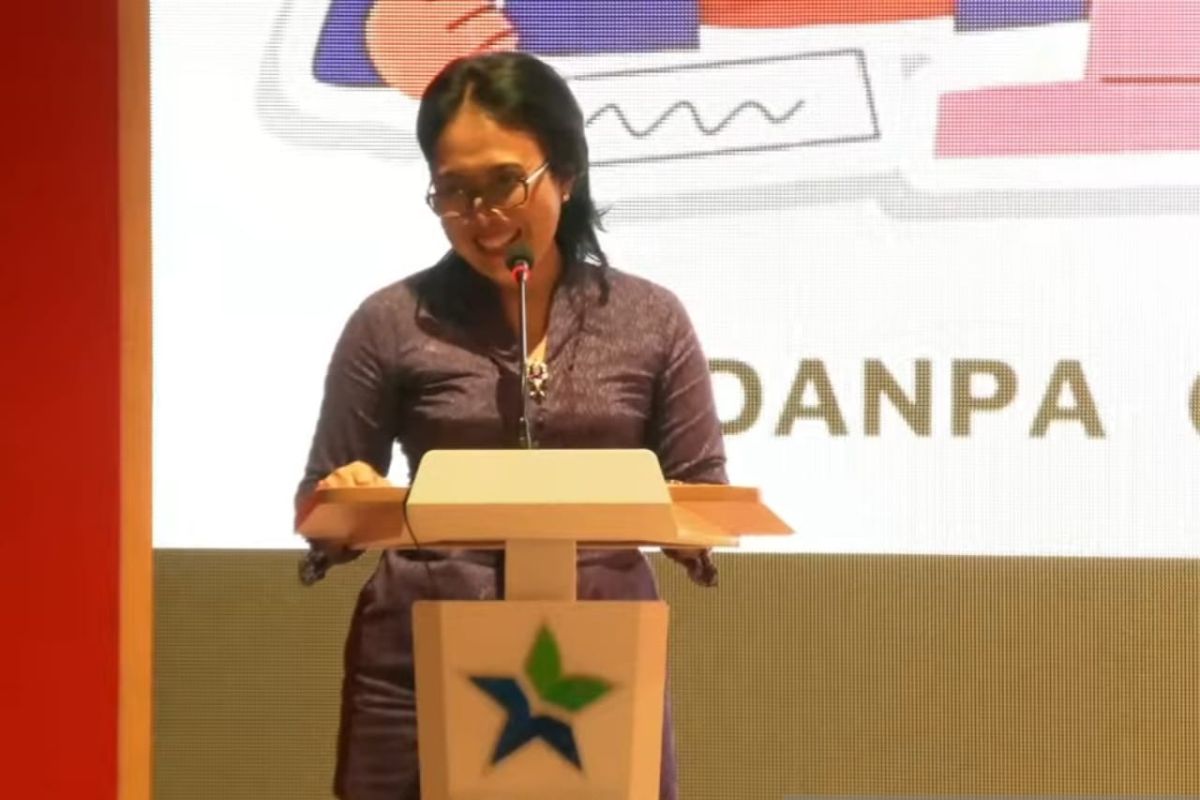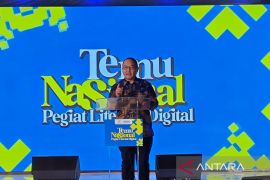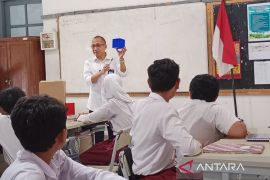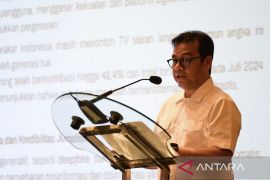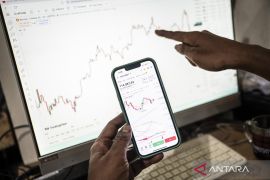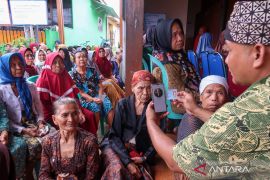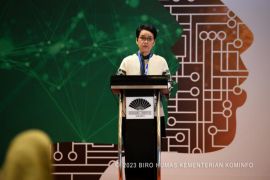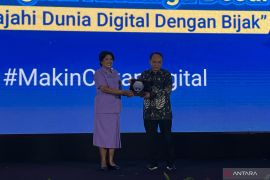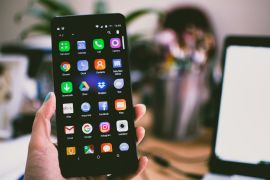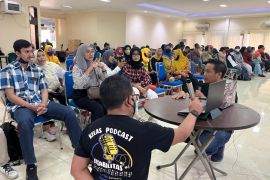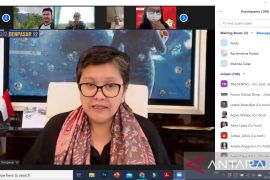At the Kartini Digital event at the National Library Building in Jakarta, Minister Darmawati said that the importance of digital awareness must be instilled in every Indonesian, especially women.
"This (Kartini Digital event) can be momentum for women. Inevitably, in this globalization era, we must be digitally literate. Furthermore, for women, being digitally literate is not an option, but a must," the minister stressed.
Darmawati also highlighted the importance of women's continuous involvement in the fields of science, technology, engineering, and mathematics (STEM) for advancing Indonesia, given the fields' vital role in efforts to innovate in various sectors in life.
"STEM fields are considered strategic fields in terms of development. The fields have a vital role in the processes of automatization and digitalization that have great impacts on women's lives. Hence, women must improve their knowledge and skills in the digitalization field," she pointed out.
She confirmed that the rate of participation of Indonesian women in higher education related to STEM fields is quite high. However, she pointed out, Indonesia has witnessed a dramatic decline in participation when it comes to the world of professional work.
"Data have shown, with regards to STEM industries, that only 2 out of 10 women opt to take (up) a professional career (in STEM). In fact, of 10 women, only 3 tend to choose a career as a researcher in the STEM fields," she said.
According to the minister, the low interest of women in STEM has its roots in two factors, namely a strong sense of men's domination in the fields and gender stereotypes in job hunting.
Her statement was based on research by the United Nations Educational, Scientific, and Cultural Organization (UNESCO), which has shown that 50 percent of women are not interested in working in STEM due to men's domination in these fields and 61 percent take gender stereotypes into consideration when looking for work.
Women are also still lagging in terms of opportunities to access information. Based on data, Darmawati said, a gap exists in the use of mobile phones and the Internet by men and women.
"If we take a look at data from BPS (Statistics Indonesia), we can find that in 2022, only 54.70 percent women had access to the Internet, compared to 61 percent men," she said.
Taking note of this, Darmawati stressed that efforts to increase women's participation and leadership in cybersecurity are not only a matter of economy and manpower, but also a gender issue.
To boost women's participation in STEM, the minister reiterated the importance of providing a support system, adding "This all needs to be seriously addressed, as women share 49.5 percent of the entire population of Indonesia."
In her speech, she also pushed Indonesian women to empower themselves with a high level of digital literacy so that they can become extraordinary agents of change, especially given the fact that Indonesia will soon enter the atmosphere of a democratic feast in 2024.
As they make up a majority of voters, she said, women must be able to sift information and validate data by optimizing digital devices, which, in turn, will help them become smart voters.
"They must use digital devices to spread positive and beneficial information. We truly hope that the voting women will help spread positive and beneficial information," the minister added.
Related news: Expert reminds of importance of digital literacy
Related news: Ministry extends MoU to create digitally literate human resources
Related news: National assembly seeks improvement in political, digital literacy
Translator: Rizka Khaerunnisa, Tegar Nurfitra
Editor: Azis Kurmala
Copyright © ANTARA 2023
